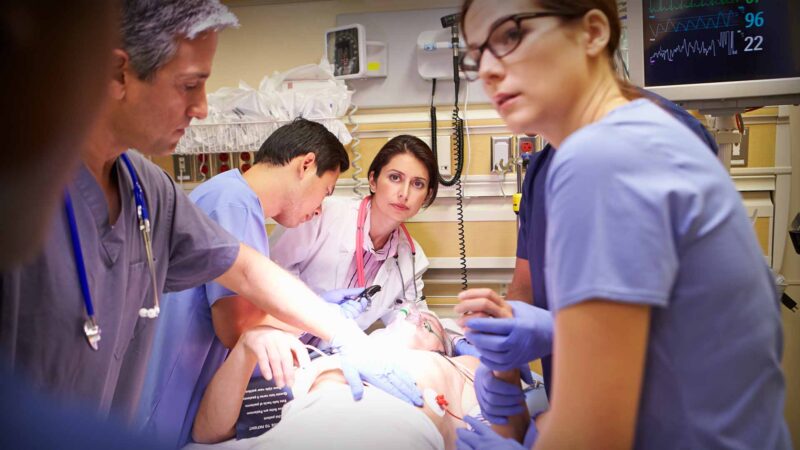Communities across Australia rely on Registered Nurses (RNs) to provide primary care, acute care and aged care. They are skilled, capable and trusted healthcare practitioners often working in some of the most rural and remote parts of the country.
In March 2023, the Australian Government released the National Rural and Remote Nursing Generalist Framework 2023–2027. The Framework is a world first and describes the unique context of practice and core capabilities for rural and remote Registered Nurses in Australia.
As well as describing skills, capabilities and support needed by RNs, the Framework emphasises the importance of clinical decision-making judgement of the patient’s situation, culturally safe practice, collaboration, and partnerships with clients, families and communities.
The framework is for RNs who work in rural and remote locations across Australia, or are looking to relocate there. One such nurse who relocated is Clinton Archer, with Queensland Health, who was interviewed by Australian Health Journal for this segment.
Other ways the the Framework can be applied include:
- For Registered Nurses, mapping their development of the capabilities with a mentor, to develop from formative to proficient skill levels.
- For Educators and Education Providers, supporting individual skill development or curriculum based on the capabilities.
- Government, Organisations and Employers, using the Framework as a guide to grow and support the development of a skilled rural and remote RN workforce
The Framework was developed by the Office of the National Rural Health Commissioner and Australian Health Journal spoke with National Rural Health Commissioner, Adjunct Professor Ruth Stewart, and Deputy National Rural Health Commissioner – Nursing and Midwifery, Adjunct Professor Shelley Nowlan, on the importance of rural and remote nursing and of the Framework itself.
Important contributions and expertise of the members of the National Rural and Remote Nursing Generalist Framework Steering Committee (Steering Committee) led the Framework through its development and consultation. Steering Committee members represented the following organisations.
- Office of the National Rural Health Commissioner
- Australian Government Department of Health and Aged Care
- Australian and New Zealand Council of Chief Nursing and Midwifery Officers
- Australian College of Nurse Practitioners (ACNP)
- Australian College of Nursing (ACN)
- Australian Nursing and Midwifery Accreditation Council (ANMAC)
- Australian Nursing and Midwifery Federation (ANMF)
- Australian Primary Health Care Nurses Association (APNA)
- Congress of Aboriginal and Torres Strait Islander Nurses and Midwives (CATSINaM)
- Council of Deans of Nursing and Midwifery (CDNM)
- Council of Remote Area Nurses of Australia (CRANAplus)
- James Cook University
- Nursing and Midwifery Board of Australia (NMBA)
You Might also like
-
New clinical research entity first to operate across both Australia and New Zealand
Over the past 30 years, 18,000 clinical trials that have been registered in Australia, with the sector contributing $1.4 billion to Australia’s economy annually. Trials are a critical aspect of evidence-based medicine, and are essential for testing how new treatments, tests and vaccines will work. In New Zealand they contribute $146 million to the New Zealand economy.
To capitalise on this unique position and growth, a coordinated multi-site clinical research operation was missing, until now.
-
Landmark research projects tackle critical issues in emergency healthcare
For two decades, the demand for emergency department services in Australia has outpaced population growth and wait times have increased. In 2022-2023 more than 8.8 million emergency department presentations occurred nationwide.
While demand is a contributing factor, EDs are currently being impacted by various factors across the entire health system.
The Emergency Medicine Foundation (EMF) is a non-profit organisation funding innovative Australian research that improves the way people are cared for in a medical emergency. The aim of the research is to deliver better and more effective health services to save lives and money.
-
Research funded to investigate early-onset bowel cancer progression
Bowel Cancer Australia recently announced a team led by Professor Michael Samuel as the successful applicant for a three-year $600k early-onset bowel cancer research project through the 2023 round of Cancer Australia’s Priority-driven Collaborative Cancer Research Scheme (PdCCRS).



